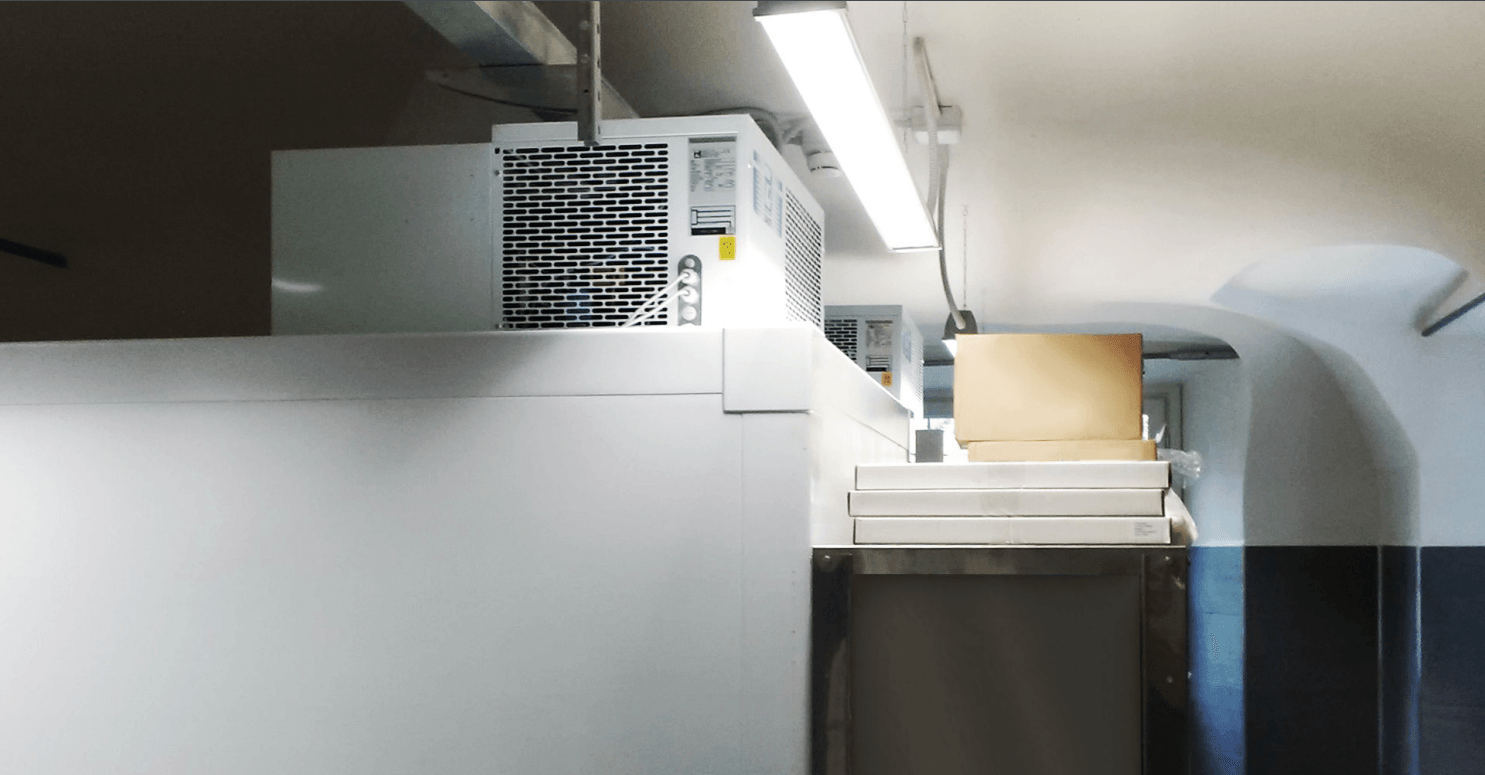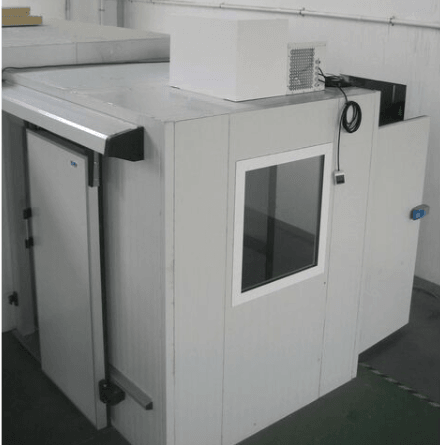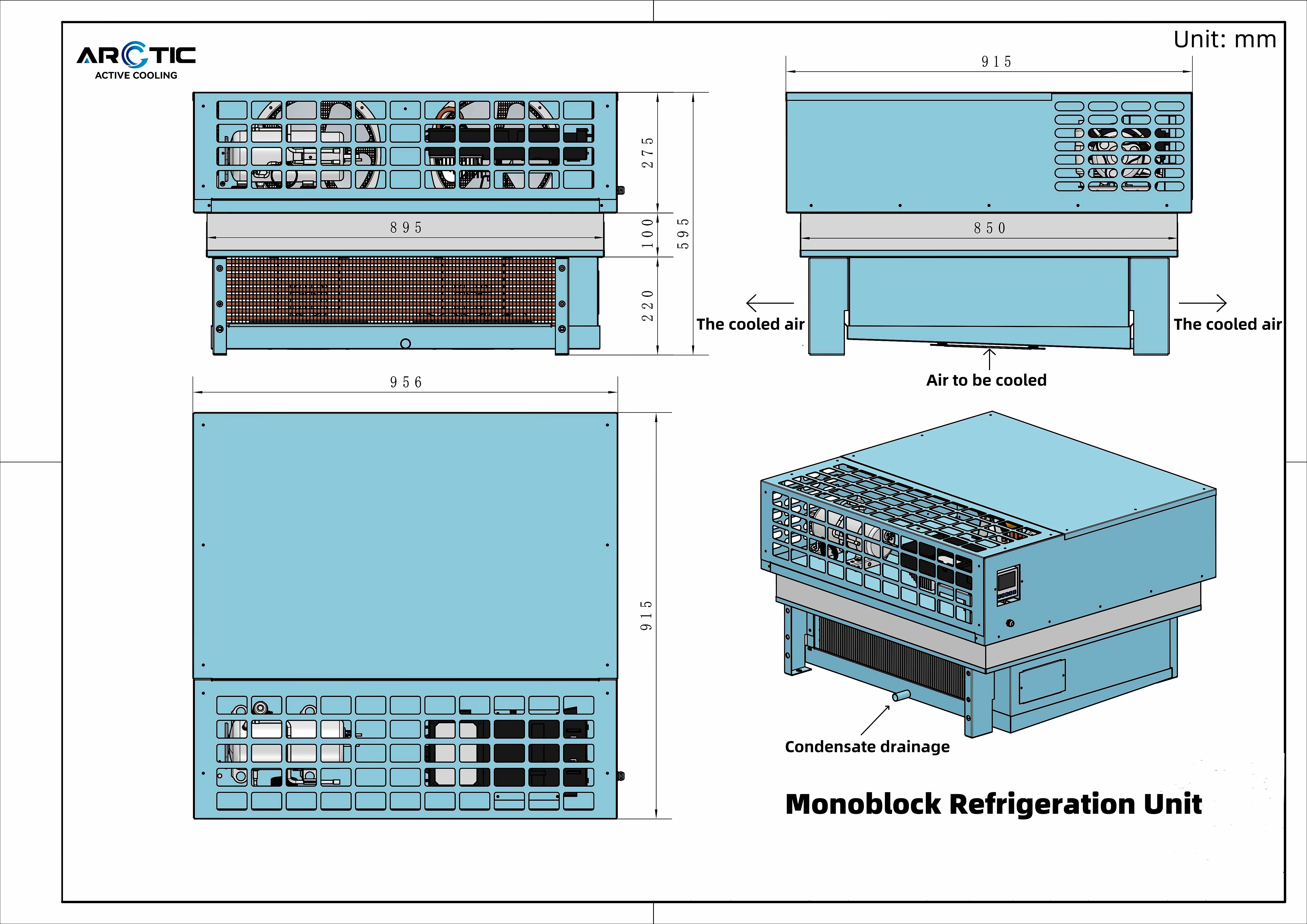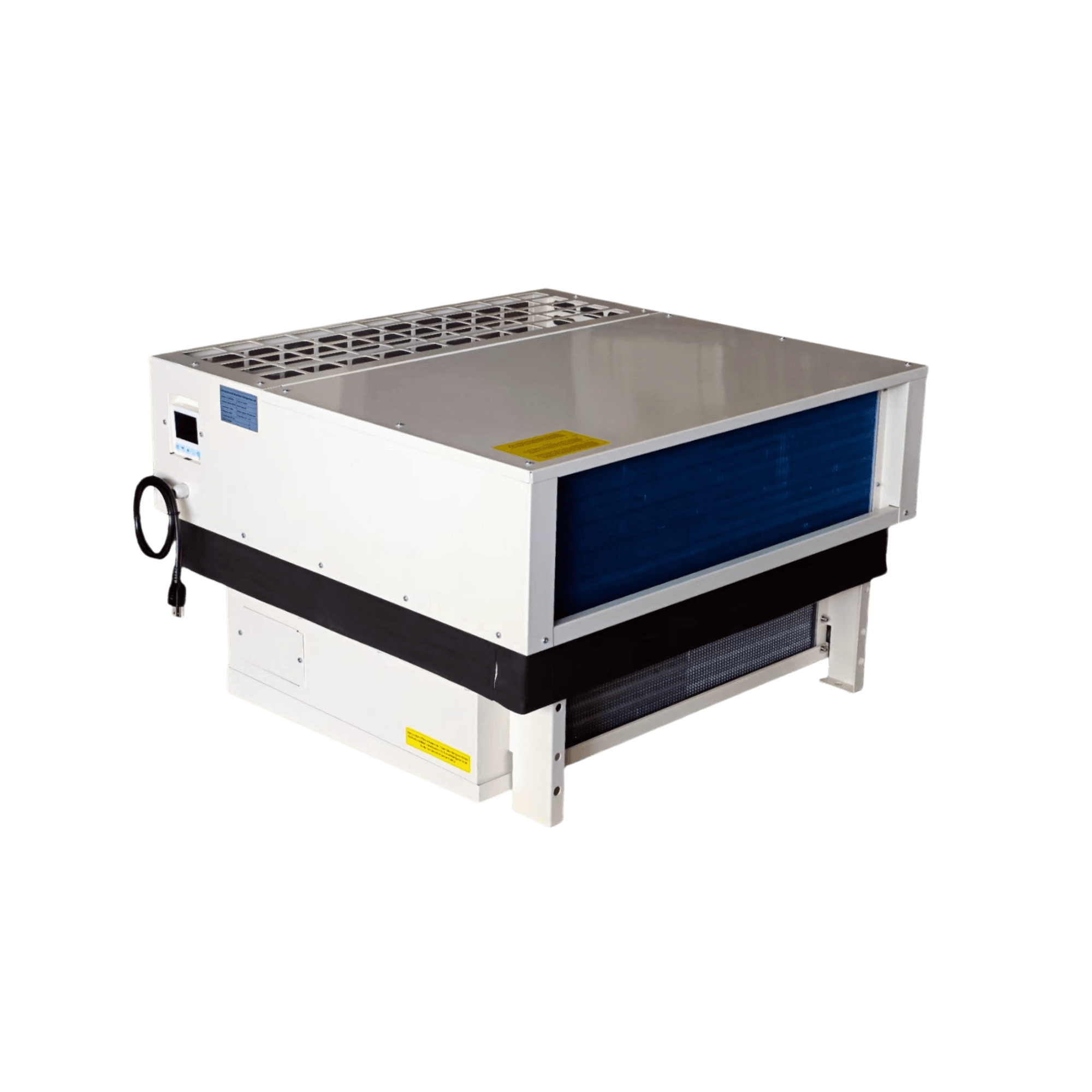Introduction

"Arctic Active Cooling. Endless Possibilities. We capture new technologies in mobile and compact cooling. Full-size cooling in a miniature design, customized to make your device stand out with innovative thermal management."
In the world of temperature-controlled storage, understanding the nuances between different cooling systems can make a significant difference for businesses and consumers alike. One such system is the chiller cold room, which plays a crucial role in various industries by maintaining specific temperature ranges for perishable goods. But what is a cold room chiller? And how does it stand apart from regular refrigeration methods that many of us are familiar with?
When we talk about regular refrigeration, we're typically referring to household refrigerators that keep our food fresh and safe to consume. However, these appliances operate on different principles compared to specialized systems like chiller cold rooms. Understanding the basics of regular refrigeration helps illuminate why certain applications require more advanced solutions, particularly in commercial settings.
The differences between these cooling systems matter greatly when it comes to efficiency, capacity, and overall effectiveness in preserving products. For instance, is a cold room a fridge? Not quite! The distinctions between cool rooms and cold rooms can also influence your choices when selecting the right type of storage for your needs. By exploring these differences further, we can uncover the best options available in today's market.
Understanding Chiller Cold Rooms
Chiller cold rooms are specialized refrigerated spaces designed to maintain specific temperatures ideal for storing various products safely. They are essential in industries like food service, pharmaceuticals, and agriculture where precise temperature control is vital for product quality and safety. So what exactly is a cold room chiller? It’s an expansive refrigerated area equipped with advanced cooling technology tailored to meet industry-specific requirements.
These systems operate using sophisticated mechanisms that allow them to maintain optimal temperatures over extended periods without fluctuation. Unlike standard refrigerators that may struggle with larger volumes or specific temperature demands, chiller cold rooms provide reliable solutions for bulk storage needs while ensuring compliance with health regulations. In this way, they serve as critical assets across multiple sectors.
Moreover, understanding the types of cold rooms available—ranging from walk-in units to modular designs—can help businesses select the right solution based on their unique requirements. This knowledge not only enhances operational efficiency but also promotes better inventory management practices within organizations looking to optimize their storage capabilities.
The Basics of Regular Refrigeration
Regular refrigeration refers primarily to domestic appliances designed for everyday use at home or small-scale commercial establishments. These refrigerators typically operate within set temperature ranges suitable for preserving food items but may not be equipped to handle larger volumes or more stringent requirements found in industrial settings. What is the difference between a chiller and a refrigerator? While both serve similar purposes—keeping things cool—the scale and functionality differ significantly.
Household fridges come with components like compressors, evaporators, condensers, and fans working together seamlessly; however, they lack the robust design necessary for maintaining consistent temperatures over large areas or extended periods like those found in chiller cold rooms. Where regular refrigeration falls short becomes evident when considering scenarios involving bulk storage or sensitive materials requiring strict temperature controls; this is where specialized cooling solutions shine brightest.
Understanding these fundamental distinctions helps clarify why some applications demand more than just your average refrigerator—especially when food safety regulations come into play! As you navigate through various options available today—including innovative technologies such as Arctic Active Cooling Top-Mounted Monoblock Refrigeration Unit—you'll find yourself better equipped to make informed decisions regarding your cooling needs.
Why the Differences Matter
Recognizing why these differences matter can significantly impact operational efficiency across various industries relying on effective cooling solutions—whether it’s restaurants needing reliable food preservation methods or pharmaceutical companies requiring strict adherence standards during product storage processes! Is a cold room a fridge? Absolutely not! Each serves its purpose within its designated scope but knowing which one fits your particular situation will save time and resources down the line.
Additionally, understanding what sets apart cool rooms from traditional refrigerators allows businesses greater flexibility when designing their facilities around specific workflows while maximizing space utilization effectively too! From choosing appropriate types of cold rooms tailored towards unique applications (like those used by florists versus meat processors) all contribute toward achieving optimal results regardless if you're dealing with perishables or other sensitive materials needing careful handling throughout their lifecycle.
Ultimately making informed choices about whether you should opt for regular refrigeration versus investing into state-of-the-art technologies such as Arctic Active Cooling's innovative units will empower stakeholders involved—from managers overseeing operations all way through staff members tasked with maintaining quality assurance protocols ensuring customer satisfaction remains top priority at every level!
The Functionality of Chiller Cold Rooms

Chiller cold rooms are specialized refrigeration systems designed to maintain precise temperature controls for various applications. These units are essential for industries that require strict adherence to temperature regulations, ensuring that products remain safe and effective. Understanding how these systems function can help businesses make informed decisions about their cooling needs.
What is a cold room chiller?
A cold room chiller is a large refrigerated space specifically engineered to store perishable items at controlled temperatures. Unlike traditional refrigerators, which are typically smaller and used for home or commercial kitchen storage, a chiller cold room can accommodate bulk quantities of goods while maintaining optimal conditions. This distinction highlights the importance of understanding what is a cold room chiller in comparison to standard refrigeration options.
How it maintains optimal temperatures
Chiller cold rooms utilize advanced cooling technology to maintain consistent temperatures within the designated space. They often employ sophisticated monitoring systems that automatically adjust cooling levels based on real-time data, ensuring that the internal environment remains stable regardless of external conditions. This capability is crucial for industries like food processing and pharmaceuticals, where temperature fluctuations can have significant consequences.
Common uses in industries
Cold rooms find application across various sectors, including food storage, pharmaceuticals, and floral preservation. In the food industry, they are vital for storing meat, dairy products, and produce at safe temperatures to prevent spoilage and ensure safety standards are met. Meanwhile, in pharmaceuticals, maintaining specific temperature ranges is critical for drug efficacy; thus, understanding the differences between cold rooms enhances operational efficiency across these diverse fields.
Regular Refrigeration Mechanisms

What is the difference between a chiller and a refrigerator?
At first glance, one might wonder: what is the difference between a chiller and a refrigerator? A refrigerator is primarily designed to keep food fresh at temperatures just above freezing, typically ranging from 32°F to 40°F (0°C to 4°C). In contrast, a chiller cold room operates at lower temperatures and can maintain environments as low as 28°F (-2°C), making it ideal for perishable goods that require stricter temperature control.
The fundamental distinction lies in their intended applications; chillers cater to commercial operations like restaurants or warehouses that need bulk storage of temperature-sensitive items. Additionally, chillers often have larger capacities compared to standard refrigerators, allowing businesses to store more products efficiently. This leads us directly into understanding what components make up your average fridge.
Components of a standard fridge
A standard refrigerator consists of several key components that work together to keep your food cool and fresh. These include the compressor, evaporator coils, condenser coils, and refrigerant fluid—each playing a vital role in maintaining optimal temperatures within the unit. The compressor pumps refrigerant through the system while evaporator coils absorb heat from inside the fridge; this process ultimately results in cooler air circulating throughout.
Moreover, modern fridges often come equipped with features such as adjustable shelves and humidity-controlled crisper drawers for improved organization and freshness preservation. However, when considering larger storage needs or specific temperature requirements for sensitive items like pharmaceuticals or certain foods, you may find yourself asking: where does regular refrigeration fall short?
Where regular refrigeration falls short
Regular refrigeration has its limitations when it comes to certain applications demanding precise temperature control over extended periods. For instance, while household refrigerators maintain adequate conditions for everyday food storage, they can't provide the low-temperature environments required by many industries—this is where chiller cold rooms shine brightly!
Additionally, traditional fridges lack flexibility; they are not built for accommodating large volumes of goods efficiently compared to specialized types of cold rooms designed specifically for bulk storage needs. In industries requiring strict adherence to temperature regulations—such as pharmaceuticals or fine dining establishments—the differences between cold rooms and conventional refrigerators become glaringly apparent.
Temperature Control Comparison

Is a cold room a fridge?
The simple answer is no; a cold room is not just a fridge. While both serve the purpose of cooling, what is a cold room chiller? It’s essentially an expansive space designed to maintain specific temperature ranges for various products, often used in commercial or industrial settings. This contrasts with traditional refrigerators that are generally smaller and intended for household use.
Ideal temperature ranges for each
Chiller cold rooms typically operate at temperatures between 32°F (0°C) and 50°F (10°C), making them ideal for storing perishables like dairy products and fresh produce. On the other hand, standard refrigerators usually keep food at around 35°F (1.6°C) to 40°F (4.4°C). Understanding these ideal temperature ranges helps clarify what is the difference between a chiller and a refrigerator when it comes to preserving freshness.
Effects on food safety and preservation
Temperature control plays an essential role in food safety and preservation, especially in commercial settings where large quantities of perishable goods are stored. A well-maintained chiller cold room can significantly reduce the risk of bacterial growth by keeping items at optimal temperatures, while regular refrigeration may not provide the same level of protection over extended periods. This highlights why understanding the differences between cold rooms, chillers & freezers is vital for ensuring product quality.
Storage Capacity and Space

When considering the storage capacity and space for cooling solutions, it's essential to understand the distinctions between a chiller cold room and other refrigeration systems. A chiller cold room is designed to handle larger volumes of goods, making it ideal for commercial applications where bulk storage is necessary. In contrast, traditional refrigerators are typically limited in size and intended for smaller-scale usage, such as home or small business settings.
What is the difference between a cool room and a cold room?
The terms cool room and cold room often cause confusion, but they refer to different temperature-controlled environments. A cool room generally maintains temperatures above freezing, usually ranging from 0°C to 10°C (32°F to 50°F), making it suitable for products that require moderate cooling. On the other hand, a chiller cold room operates at lower temperatures (often below 0°C) for items that need strict temperature control for preservation purposes—think of it as the more serious sibling in the refrigeration family.
Space requirements for chiller cold rooms
Chiller cold rooms require more dedicated space compared to standard refrigerators due to their larger size and specialized design. The footprint of these units can vary significantly based on their intended use; some may occupy an entire warehouse section while others fit into smaller commercial spaces. Regardless of size, businesses must plan accordingly when integrating a chiller cold room into their operations to ensure efficient workflow and accessibility.
Versatility: cold room options versus traditional fridges
When pitting cold rooms against traditional fridges in terms of versatility, it's clear that chiller cold rooms take the cake—or should we say cake storage? Cold rooms can be customized in various sizes and configurations tailored to specific industry needs, allowing them to store everything from pharmaceuticals to perishables without breaking a sweat. Traditional refrigerators may have limited options regarding capacity or temperature control, making them less adaptable than their cooler counterparts when faced with diverse storage demands.
Types of Cold Rooms and Applications
When discussing the various types of cold rooms, it's essential to understand the distinctions between chiller cold rooms, chillers, and freezers. A chiller cold room is specifically designed for maintaining a controlled temperature environment for perishable goods, while traditional freezers operate at much lower temperatures to preserve food for longer periods. Understanding these differences is crucial when determining the best cooling solution for your needs.
Differences Between Cold Rooms, Chillers & Freezers
To clarify further, what is a cold room chiller? It refers to a specialized space that uses chilled air to keep items at optimal temperatures without freezing them. In contrast, what is the difference between a chiller and a refrigerator? While both serve refrigeration purposes, chillers are often larger and handle more substantial loads compared to standard refrigerators that typically cater to household needs. This distinction becomes even clearer when considering how each system operates; cold rooms focus on large-scale storage while refrigerators manage smaller quantities.
Moreover, understanding the difference between a cool room and a cold room is vital for businesses looking to maximize efficiency. A cool room generally maintains higher temperatures than a dedicated cold room or chiller setup, which can be detrimental in preserving sensitive products like pharmaceuticals or fresh produce. Thus, recognizing these differences between cold rooms, chillers & freezers can help you make informed choices about your cooling requirements.
Specialized Cold Rooms for Different Industries
Cold rooms come in various forms tailored to meet specific industry needs across sectors such as food service, pharmaceuticals, and agriculture. For instance, restaurants often utilize chiller cold rooms for storing ingredients at precise temperatures essential for food safety and quality control. On the other hand, pharmaceutical companies rely on specialized cold storage solutions designed to maintain strict temperature regulations crucial in preserving medication efficacy.
Different types of cold rooms cater specifically to individual industry demands; some may require advanced monitoring systems while others focus on maximizing space efficiency with modular designs. Industries dealing with delicate perishables like flowers or seafood benefit from custom-built systems that provide ideal conditions tailored to their unique requirements. By understanding these specialized applications of different types of cold rooms, businesses can better align their cooling solutions with operational goals.
Innovations in Cold Room Technology: A Look at Arctic Active Cooling Top-Mounted Monoblock Refrigeration Unit
The Arctic Active Cooling unit not only ensures optimal temperature control but also enhances energy efficiency—a key factor in reducing operational costs over time. With its user-friendly features and robust construction aimed at meeting diverse refrigeration needs across industries like hospitality and healthcare alike; this technology showcases how innovations continue shaping our approach towards effective temperature management solutions in various environments.
In conclusion, understanding the different types of cold rooms available today equips businesses with valuable insights needed when selecting appropriate cooling technologies tailored precisely for their unique demands.
Conclusion
In wrapping up our exploration of chiller cold rooms and their distinct functions, it's crucial to recognize the pivotal role they play in various industries. Understanding what is a cold room chiller? can help businesses make informed decisions about their cooling needs. The differences between cold rooms, chillers, and freezers also highlight the importance of choosing the right storage solution for specific temperature requirements.
Key Takeaways on Chiller Cold Rooms
Chiller cold rooms are specialized refrigeration units designed to maintain precise temperature control for perishable goods. Unlike standard refrigerators, which serve general household needs, a chiller offers enhanced capacity and efficiency tailored for industrial applications. Moreover, understanding what is the difference between a chiller and a refrigerator? allows businesses to optimize their storage strategies while ensuring food safety and quality.
Making Informed Cooling Choices
When considering cooling options, it’s essential to evaluate your specific requirements against the capabilities of different types of cold rooms available today. For instance, if you're managing large quantities of perishables or need strict temperature controls, investing in a chiller might be more beneficial than relying on traditional refrigeration methods. Innovations like the Arctic Active Cooling Top-Mounted Monoblock Refrigeration Unit exemplify how modern technology can elevate efficiency in both cold rooms and commercial refrigeration.
When to Choose Regular Refrigeration Over a Cold Room
While chiller cold rooms are indispensable for certain applications, there are scenarios where regular refrigeration could suffice—especially for smaller operations or home use. If you’re wondering if a cold room is a fridge?, remember that fridges generally cater to everyday household needs without requiring extensive space or specialized cooling solutions. Ultimately, understanding what is the difference between a cool room and a cold room? will guide you in selecting an appropriate system based on your storage volume and temperature control requirements.
